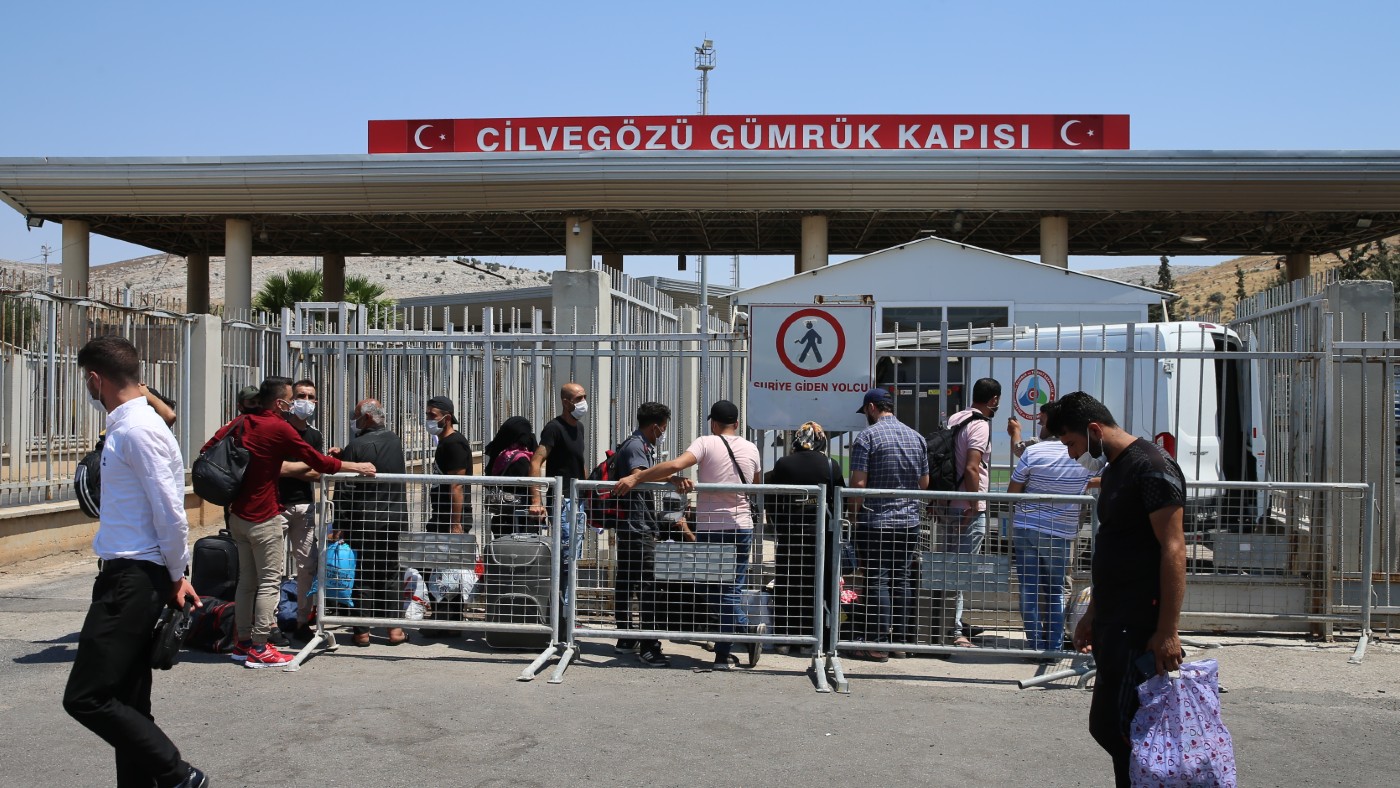Send them back to Syria? Exploring Turkey’s refugee dilemma
Attitudes towards recent arrivals are hardening – and Ankara is taking action

A free daily email with the biggest news stories of the day – and the best features from TheWeek.com
You are now subscribed
Your newsletter sign-up was successful
Turkey’s response to the Syrian refugee crisis has been laudably humanitarian, said Sinem Cengiz in Arab News (Riyadh). The country has taken in 3.7 million refugees from its southern neighbour, as well as hundreds of thousands more from Afghanistan. It is home to more refugees than any other country in the world, and has given citizenship to 200,000 (mainly highly skilled) Syrians.
Unfortunately, attitudes in Turkey towards its recent arrivals are hardening – and Ankara is taking action, said Jennifer Holleis and Kersten Knipp in Deutsche Welle (Bonn). Last month, Turkey’s President Erdogan announced a plan to convince a million Syrians to return voluntarily to “safe” Turkish-controlled zones in Syria’s northern Idlib region. Turkey has built some 50,000 briquette houses for them there, and plans to build 200,000 more, along with hospitals and schools.
Ankara hopes the plan will ease domestic tensions and give Turkey a new “economic hub in Syria”. But it is fraught with risk. Idlib, “a magnet for internally displaced Syrians”, is already overcrowded. And it remains a target for shelling by Russia, one of the few allies of Syrian despot Bashar al-Assad.
The Week
Escape your echo chamber. Get the facts behind the news, plus analysis from multiple perspectives.

Sign up for The Week's Free Newsletters
From our morning news briefing to a weekly Good News Newsletter, get the best of The Week delivered directly to your inbox.
From our morning news briefing to a weekly Good News Newsletter, get the best of The Week delivered directly to your inbox.
Erdogan – who insists Turkey will “continue to look after our Syrian brothers” – has had his hand forced by opposition figures bent on sowing division, said Nagehan Alçı in Daily Sabah (Istanbul). The most cynical culprit is Ümit Özdag, leader of the far-right Victory Party founded last year, which wants to “kick out all the Syrians and even ban Syrian children from enrolling in Turkish schools”.
Last month, Özdag funded a film depicting a dystopian Istanbul in 2043, where Syrians dominate the economy and Turks can’t get jobs. The film – entitled Silent Invasion – has been viewed 4.5 million times, and has contributed to a febrile mood ahead of elections next year.
Tensions are high, agreed Selcan Hacaoglu on Bloomberg (New York). Turkey is in the grip of an economic crisis that has seen inflation hit 70%. Complaints about “overcrowded classrooms” and hospitals, and competition for jobs and housing, are growing increasingly loud.
Ankara has an ulterior motive in sending refugees to northern Syria, said Francesco Siccardi in Foreign Policy (Washington). The region is a stronghold of a Syrian Kurdish militia that Turkey views as a security threat and wants to push away from its border. By sending Sunni Muslims from Syria there, Erdogan hopes to dilute the Kurdish population and “prevent the emergence of a Syrian Kurdish proto-state”.
A free daily email with the biggest news stories of the day – and the best features from TheWeek.com
In practice, many refugees in Turkey may end up being coerced into returning to Syria, said Adnan Nasser and Alexander Langlois in Carnegie Endowment for International Peace (Washington). And it will be far from safe. Militias in Syria still “kill civilians for sport”; ceasefire violations are common; and the economy has collapsed. A “peaceful or safe space to return to”? Hardly.
-
 A dreamy long weekend on the Amalfi Coast
A dreamy long weekend on the Amalfi CoastThe Week Recommends History, pasta, scenic views – this sun-drenched stretch of Italy’s southern coast has it all
-
 Can foster care overhaul stop ‘exodus’ of carers?
Can foster care overhaul stop ‘exodus’ of carers?Today’s Big Question Government announces plans to modernise ‘broken’ system and recruit more carers, but fostering remains unevenly paid and highly stressful
-
 6 exquisite homes with vast acreage
6 exquisite homes with vast acreageFeature Featuring an off-the-grid contemporary home in New Mexico and lakefront farmhouse in Massachusetts
-
 The fall of the generals: China’s military purge
The fall of the generals: China’s military purgeIn the Spotlight Xi Jinping’s extraordinary removal of senior general proves that no-one is safe from anti-corruption drive that has investigated millions
-
 Epstein files topple law CEO, roil UK government
Epstein files topple law CEO, roil UK governmentSpeed Read Peter Mandelson, Britain’s former ambassador to the US, is caught up in the scandal
-
 Iran and US prepare to meet after skirmishes
Iran and US prepare to meet after skirmishesSpeed Read The incident comes amid heightened tensions in the Middle East
-
 Syria’s Kurds: abandoned by their US ally
Syria’s Kurds: abandoned by their US allyTalking Point Ahmed al-Sharaa’s lightning offensive against Syrian Kurdistan belies his promise to respect the country’s ethnic minorities
-
 Israel retrieves final hostage’s body from Gaza
Israel retrieves final hostage’s body from GazaSpeed Read The 24-year-old police officer was killed during the initial Hamas attack
-
 China’s Xi targets top general in growing purge
China’s Xi targets top general in growing purgeSpeed Read Zhang Youxia is being investigated over ‘grave violations’ of the law
-
 Syria’s Islamic State problem
Syria’s Islamic State problemIn The Spotlight Fragile security in prison camps leads to escape of IS fighters
-
 Panama and Canada are negotiating over a crucial copper mine
Panama and Canada are negotiating over a crucial copper mineIn the Spotlight Panama is set to make a final decision on the mine this summer